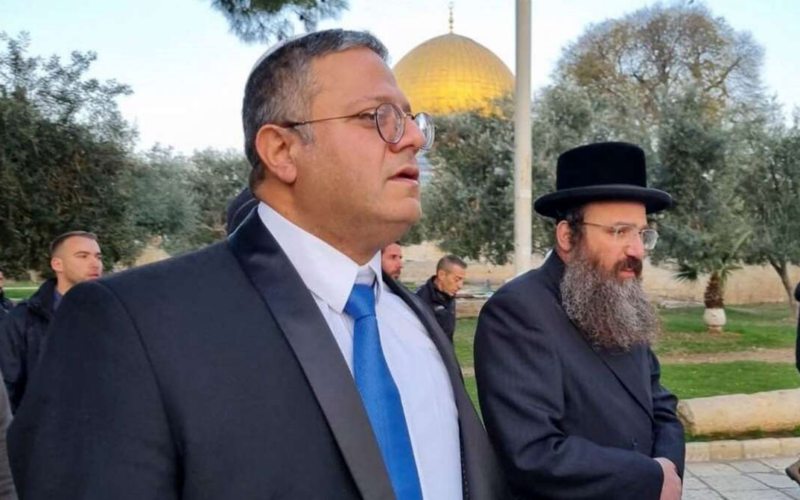Israeli National Security Minister Itamar Ben-Gvir has ignited significant controversy by advocating for Jewish prayer at the Al-Aqsa Mosque compound in Jerusalem, a site of profound religious significance to both Muslims and Jews. His comments have drawn widespread condemnation from Palestinians and international observers alike, as the site, known to Jews as the Temple Mount, has long been a flashpoint in the Israeli-Palestinian conflict.
During a visit to the site on Tuesday, Ben-Gvir stated that Jews should be allowed to pray at the compound, directly challenging the long-standing status quo that permits Jewish visits but prohibits Jewish prayer. The Al-Aqsa Mosque, which is administered by a Jordanian religious foundation known as the Waqf, is revered by Muslims as the third holiest site in Islam. For Jews, the Temple Mount is the most sacred place, believed to be the location of the ancient Jewish temples.
Prime Minister Benjamin Netanyahu swiftly distanced himself from Ben-Gvir’s remarks, insisting that there would be no change to the existing rules governing the site. “There is no private policy of any minister on the Temple Mount,” Netanyahu’s office declared, emphasizing that the status quo would be maintained.
Ben-Gvir’s actions come at a particularly volatile time, with the ongoing war in Gaza heightening tensions across the region. The Palestinian Authority has condemned his visit as a deliberate provocation, warning that it risks triggering a wider escalation of violence. Palestinian President Mahmoud Abbas’s spokesperson called on the United States to intervene to prevent the situation from spiraling out of control.
The incident also exposed deep divisions within Netanyahu’s right-wing coalition government. Ben-Gvir, who leads one of the religious-nationalist parties in the coalition, has repeatedly clashed with other ministers over his hardline stances, particularly on issues related to Palestinian territories and religious freedoms.
Moshe Gafni, head of the ultra-Orthodox United Torah Judaism party, criticized Ben-Gvir’s actions, stating that his visit to such a sacred site was deeply inappropriate. “The damage it causes to the Jewish people is unbearable, and it also causes unfounded hatred on the day of the destruction of the Temple,” Gafni said, referencing the Jewish day of mourning that Ben-Gvir’s visit coincided with.
This latest controversy adds to the growing friction within Netanyahu’s government, which has been beset by internal disputes since taking office at the end of 2022. Despite these tensions, political calculations have so far kept the coalition intact, with ministers like Defense Minister Yoav Gallant continuing to serve as a counterbalance to the more extreme elements within the government.
As the situation remains tense, the international community watches closely, with fears that any shift in the delicate status quo at Al-Aqsa could have far-reaching consequences for the already volatile Israeli-Palestinian conflict.








